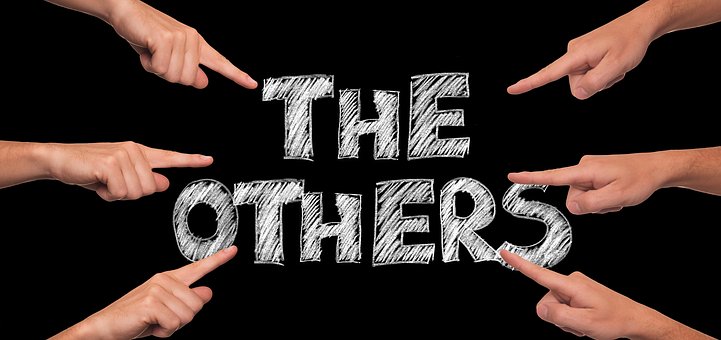Searching for the culprit in the current agricultural situation? Remember that it is we who make the final decisions in our daily lives.
“My business is so big! I thought expanding would reduce the number of problems. In fact, I’ve never had so many.” Paul is distraught. He doesn’t know where to turn. He feels dwarfed by his “too” big dairy farm. In fact, he is close to becoming depressed.
Why did Paul develop such a large business? What motivated him?
Is globalization to blame? Is it the Americans and their model? Is it all those agronomists during conferences who prodded him with their “If you don’t grow, you’ll die.” statements? Maybe it’s because of his three neighbours who built blue silos, loose housing stables and milking machines. And what about all those agricultural representatives who visited with their magazines, their success stories, their impressive client commentaries… making even the smallest farmer dream. Or maybe it was the financial advisor who calculated it down to the last penny and proved the profitability of his big plans.
It must be the lenders. “They were quick to approve the loans,” says Paul. They fought among themselves to establish which of them would lend him hundreds of thousands of dollars. No problem, Paul’s got plenty of collateral, and since the financing institutions were ready to invest, it must have been because Paul’s plans were profitable, right? Paul’s wife, he has to admit, wasn’t as supportive as she could have been. If she had been there for him, been more understanding, if she’d worked harder and spent less…What about his three sons, strong as oxen, but often, so lazy? Paul had dreams for them, developed it all for them so that it would be easy, so they wouldn’t live in poverty. But what do you want, kids nowadays…
And then, there is the price of the quotas. If it weren’t for the others who speculated, who bought or sold at too high a price, Paul wouldn’t have had to go into debt and wouldn’t have to still buy quota at extravagant prices. And then of course, there was mad cow, the disease that caused Paul to lose so much money.
Paul’s got a heavy heart. We tend to speculate about the culprits of the current situation in agriculture. There’s a lot of finger pointing going on.
Many external factors contributed, influenced and will continue to influence our decisions. The economic, political, social, demographic and environmental factors exist, and probably will continue for a long time.
But at the end of the day, we must remember that it is we who make the final decisions in our daily lives. The great drama is that for many entrepreneurs, the factors that will influence them the most at the end of the day is the unconscious motivations, their hurts, their hates or their fears.
One such entrepreneur told me, with great wisdom, at the end of a long personal road: “I think that behind every great entrepreneur lies great suffering.” He knew what he was talking about. This man developed a business estimated at many tens of millions of dollars motivated by rage, vengeance and shame. It is through these motivating factors that many will choose which sources to listen to in order to make their decisions.
Example:
If I have a great need for recognition because my father always said I was a loser, it could be that I want to believe that the only farmers with futures are those having over 100 cows. If I lived in shame of my poverty, it could be that I was blinded by the idea of becoming very rich, or at the very least, having others believe that I’m rich. It could then be that I will allow myself to be tempted by the big tractor or the sparkling milking salon. If I am consumed by rage and anger, it could be that any price is worth it to purchase the neighbour’s land. So, when we know what we want, the greatest question we should ask ourselves is “Why?”
There are two factors for success:
▪ The desire for success: to become the best I can be, to develop my full potential with my strengths, limits, reality and environment.
▪ The fear of failure: it comes from sufferings we’ve had and it manifests itself by anger, rage, shame, the need for recognition, the desire for vengeance or to prove to others that we’re important.
Many businesses in all sectors of activity, many high-level management types and many professionals “succeed” with this motivation. However, this “success” is fleeting, and brings only short-term satisfaction. It is in no case synonymous with happiness.
Business decisions based on fear of failure are bad bets. They result in irrational and blind choices that do not reflect reality.
Over 2,000 years ago, the great Greek philosopher Socrates said “Know thyself”. In those times, a god was responsible for all events, good and bad. Humans often forgot to question themselves and their roles. How about you? How well do you know yourself?
Pierrette Desrosiers
Work Psychologist, professionnal speaker, author and business coach




